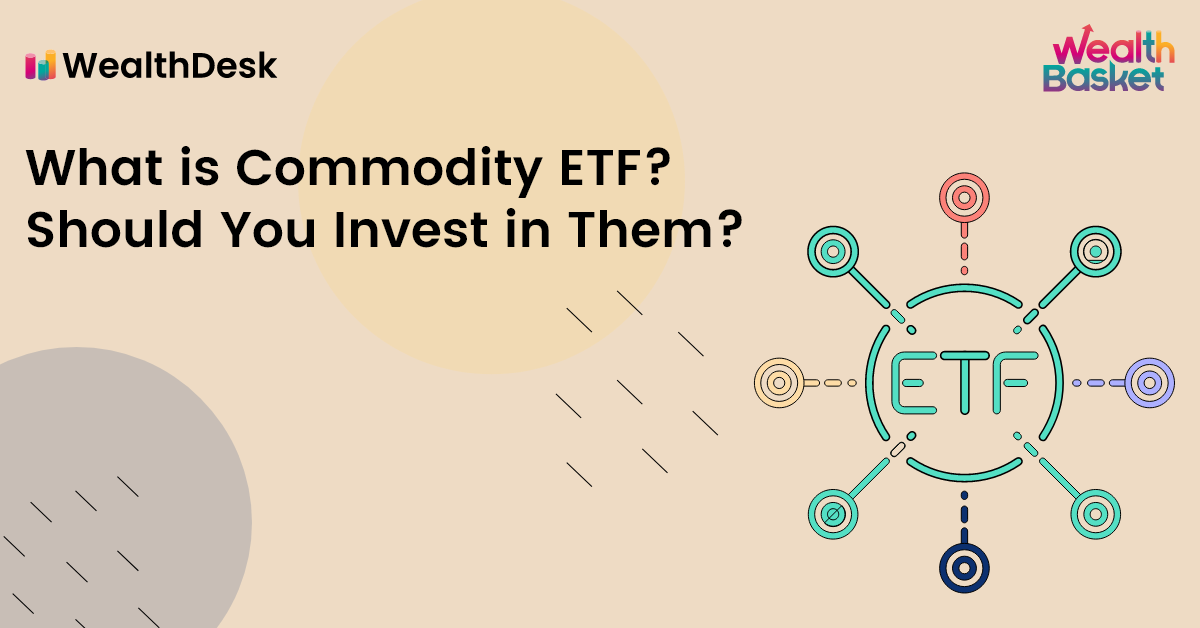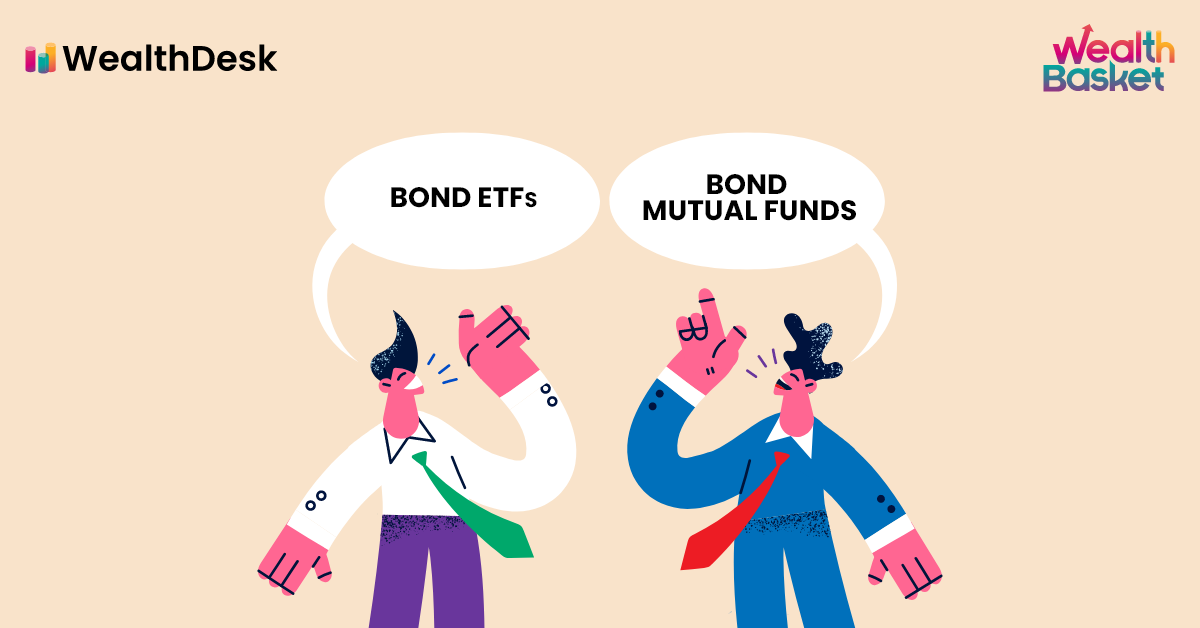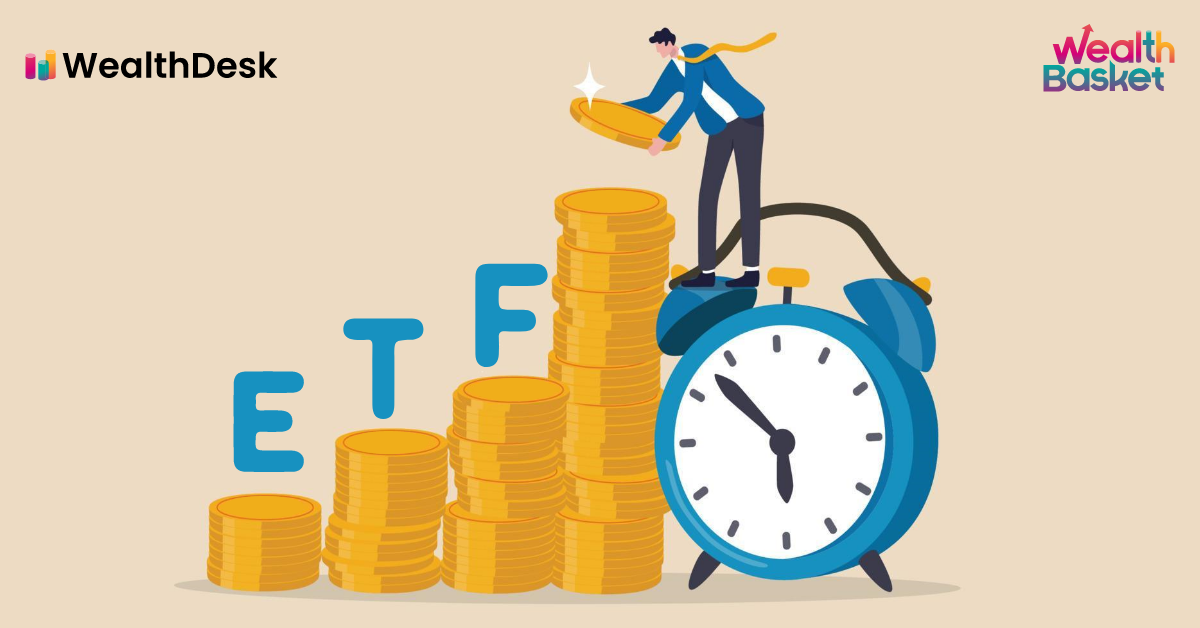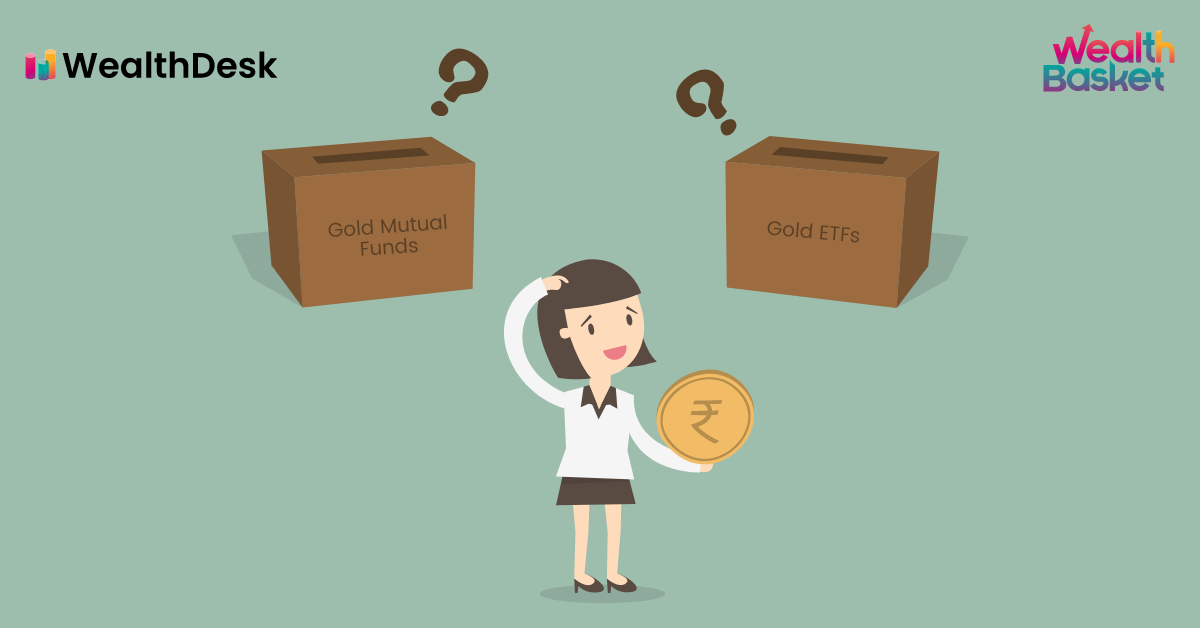One of India’s silver commodity ETFs, the ICICI Prudential Silver ETF, showed an average return of 8% (one month period) in February 2022, barely a month after launch. The geopolitical background (the Russia-Ukraine war) creates an atmosphere of uncertainty and mayhem.
While it is highly unpredictable how these markets will affect the prices of the commodities, the commodity ETFs are relatively safer due to their diversity and broad exposure to the market.
It would be incorrect to mention that gold and silver are the best commodity ETFs without risk-free because they also carry certain market risks. So, is commodity ETF a good investment option?
Continue reading to find out if investing in commodities could fetch you desirable returns or not.
What is a Commodity ETF?
An Exchange-traded fund (ETF) that invests in physical commodities such as agricultural commodities, natural resources, and precious metals is a commodity ETF.
When you buy a commodity ETF, you generally do not physically possess a real asset but hold a collection of commodity-backed contracts. Commodity ETFs work as a hedge, but like any other investment, they expose themselves to a certain degree of risk, not always guaranteeing profitability.
How Do Commodity ETFs Work?
Commodity ETFs invest in futures or asset-backed contracts that track the performance of one commodity or group of commodities. Commodity funds frequently develop their benchmark indexes, which may exclusively comprise agricultural items, natural resources, or metals.
Because many commodity ETFs employ leverage by purchasing derivative contracts, substantial amounts of uninvested funds can acquire treasury securities or other practically risk-free investments.
Popular Types of Commodity ETFs in India
At present (March 2022), there are only two types of commodity ETFs in India – Gold and Silver. Until now, only gold ETFs were popular; however, after the launch of the ICICI silver ETF in January 2022, you have one more option to invest in another commodity ETF.
-
Gold ETFs
A gold ETF is a type of commodity ETF that tracks the price of physical gold. Each Gold ETF unit is equivalent to one gram of gold and is backed by pure genuine gold. Like any other stock, gold ETFs trade on the National Stock Exchange of India (NSE) and the Bombay Stock Exchange Ltd. (BSE).
-
Silver ETFs
A silver ETF invests in silver or silver instruments to duplicate its performance. As a successful issuer of India’s first silver ETF, ICICI Prudential Asset Management Company Ltd raised around ₹115 crores through the new fund offer (NFO).
Are Commodity ETFs a Good Investment Option in India?
Let’s explore the reasons why you may want to consider investing in the commodity ETFs:
Leverage Commodity Market
Individual commodity prices can fluctuate owing to supply and demand, currency rates, inflation, and the economy’s general health. In recent years, increased demand from massive global infrastructure projects has significantly impacted commodity prices. Commodity price increases have generally boosted the stocks of firms in industry related to the commodities.
Investors can gain exposure to the commodity market through gold ETFs, which provide a transparent, profitable, and secure platform. They also have a high level of liquidity because gold can be traded rapidly and without any fuss.
Greater Liquidity
Unlike investments in real estate assets, commodity ETFs provide excellent liquidity. Commodity ETFs are simple to buy and sell. One of the main advantages of investing in commodity ETFs is that they offer greater liquidity.
Since they do not have any lock-in period, you can sell them any time on the stock exchange when you run out of cash and want to have some liquidity on your hand.
Budget-friendly
Commodity ETFs have substantially lower expense ratios than actively managed funds, which mutual funds often are. While the mutual funds may have an expense ratio as high as 2% for equity funds and 2.25% for debt funds, ETFs have a regulatory cap of charging a maximum of 1% of the schemes Asset Under Management (AUM) as an expense ratio.
In that comparison, commodity ETFs are pretty cost-effective. For example, the newly released silver ETF by ICICI has an expense ratio of only 0.4% per annum.
Flexibility
Commodity ETFs are pretty flexible because you can buy or sell them on the stock exchange, like trading the equity stocks. Commodity ETFs, such as gold ETFs, can be purchased online and deposited into your Demat account, allowing you to enter and exit whenever you want.
Tax-efficiency
The returns of commodity ETFs are subject to long-term capital gains tax. Still, the long-term capital gain tax rate of 20% will give you the benefit of indexation cost that will allow you to provide an inflation effect to the purchase price of your ETF.
Moreover, no additional sales tax, VAT, or wealth tax levy will be there, which you might be paying while buying the physical commodities.
Well-diversified
Some of the best-diversified commodity ETFs provide exposure to a broad asset class. These funds give investors access to a wide range of commodities futures and hard assets, such as precious metals, crude oil, and raw materials, which may frequently function as an inflation hedge.
Some of the best-diversified commodity ETFs in India are Axis Gold Fund, Invesco India Gold Fund, Reliance Gold Savings Fund, and Birla Sun Life Gold Fund.
Investing in Commodities ETF
Commodity exchange-traded funds (ETFs) provide you with immediate exposure to the price and performance of a particular commodity in a single trade. Without an ETF, you would have to buy commodities futures or invest in associated derivatives. You make one trade at one price and save on commissions with an ETF.
How to Invest in Commodity ETFs?
Before trading in Commodity ETFs, consider the following:
- Tracking volatile commodities can be troublesome. Research well before trading in them.
- Watch the reactions of your chosen commodity ETF to varying market conditions.
- Commodity ETF carries management and trading risk, which you must be aware of.
- Depending on your research, devise strategies that align with your risk appetite, investment goals, and tenure to stay invested in them.
- Once your investment goals are aligned, you can plan an asset mix and invest in commodity ETFs.
Alternatively, you may invest in the WealthBasket consisting of stocks or ETFs curated explicitly by the SEBI-registered investment managers at WealthDesk.
Conclusion
Commodities are risky investment vehicles because of the unforeseen uncertainties that impact their market prices frequently. But beginners and professional traders have several possibilities for investing in financial products that provide access to commodities markets with the right strategy.
Discover stocks that suit certain filter criteria and dive into details to check their WealthBaskets.
At WealthDesk, we offer you a readymade WealthBasket consisting of stocks or ETFs reflecting an investment strategy or theme designed explicitly by the SEBI-approved investment professionals and make your investment journey hassle-free.
FAQs
Commodity ETFs are excellent investment vehicles for anyone looking to hedge risk or acquire exposure to tangible commodities such as agricultural products, precious metals, and energy resources. However, the composition of a commodity ETF differs from that of a standard ETF.
Until recently, the Indian markets had only one commodity ETF, Gold ETF. The launch of Silver ETFs a month back gives you a new asset class to diversify your portfolios.
The gold market is diverse and growing. The precious metal has always been a secure investment and a safeguard against inflation. It is employed in jewelry, technology, central banks, and investors, giving rise to its market at various times across the world economy. Gold is one of the most secure commodities in which one could invest.


















